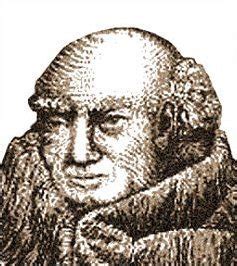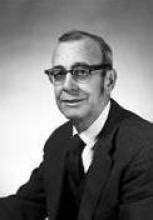A Quote by Thomas Merton
Cupidity...takes created things for ends in themselves, which they are not. The will that seeks rest in creatures for their own sake stops on the way to its true end, terminates in a value which does not exist, and thus frustrates all its deepest capacities for happiness and peace.
Related Quotes
The problem of reconciling human suffering with the existence of a God who loves, is only insoluble so long as we attach a trivial meaning to the word "love", and look on things as if man were the centre of them. Man is not the centre. God does not exist for the sake of man. Man does not exist for his own sake. "Thou hast created all things, and for thy pleasure they are and were created." We were made not primarily that we may love God (though we were made for that too) but that God may love us, that we may become objects in which the divine love may rest "well pleased".
The truth is that life is hard and dangerous; that he who seeks his own happiness does not find it; that he who is weak must suffer; that he who demands love will be disappointed; that he who is greedy will not be fed; that he who seeks peace will find strife; that truth is only for the brave; that joy is only for him who does not fear to be alone; that life is only for the one who is not afraid to die.
It is a special kind of enlightenment to have this feeling that the usual, the way things normally are, is odduncanny and highly improbable. G.K.Chesterton once said that it is one thing to be amazed at gorgon or a griffin, creatures which do not exist; but it is quite another and much higher thing to be amazed at a rhinoceros or a giraffe, creatures which do exist and look as if they don't. This feeling of universal oddity includes a basic and intense wondering about the sense of things.
There are branches of learning and education which we must study merely with a view to leisure spent in intellectual activity, and these are to be valued for their own sake; whereas those kinds of knowledge which are useful in business are to be deemed necessary, and exist for the sake of other things.
Our technological society has no longer any place in it for wisdom that seeks truth for its own sake, that seeks the fullness of being, that seeks to rest in an intuition of the very ground of all being. Without wisdom, the apparent opposition of action and contemplation, of work and rest, of involvement and detachment, can never be resolved.
Very often pessimistic people speak against their own desire. They want to undertake some work, and they say, 'I will do this, but I don't think I shall succeed in it.' Thus they hinder themselves in their path. Man does not know that every thought makes an impression on the consciousness and on the rhythm with which the consciousness is working. According to that rhythm that reflection will come true and happen; and a man proves to be his own enemy by his ignorance of these things.
It is man's duty to live in conformity with the divine will, and this means, firstly, bringing his life into line with 'nature's laws', and secondly, resigning himself completely and uncomplainingly to whatever fate may send him. Only by living thus, and not setting too high a value on things which can at any moment be taken away from him, can he discover that true, unshakeable peace and contentment to which ambition, luxury and above all avarice are among the greatest obstacles.
The Gospel of Life is not for believers alone: it is for everyone. The issue of life and its defense and promotion is not a concern of the Christian alone. Although faith provides special light and strength, this question arises in every human conscience which seeks the truth and which cares about the future of humanity. Life certainly has a sacred and religious value, but in no way is that value a concern only of believers. The value at stake is one which every human being can grasp by the light of reason; thus it necessarily concerns everyone.
If a man has no worries about himself at all for the sake of love toward God and the working of good deeds, knowing that God is taking care of him, this is a true and wise hope. But if a man takes care of his own business and turns to God in prayer only when misfortunes come upon him which are beyond his power, and then he begins to hope in God, such a hope is vain and false. A true hope seeks only the Kingdom of God... the heart can have no peace until it obtains such a hope. This hope pacifies the heart and produces joy within it.
As a reformer the liberal is dissatisfied with things as they are because they violate his exceptionally tender conscience.... Liberalism does not advocate change for its own sake, but for the sake of something better in the direction of what he regards as good, namely, the maximum of liberty consistent with a regard for all men and all interests -- the general happiness based on peace and justice.


































